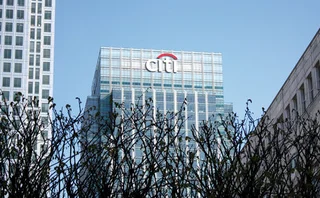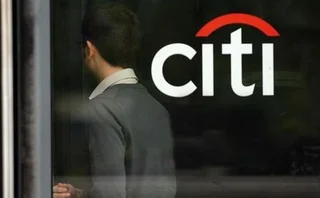
FX lawsuits: the roundup
The number of cases related to conduct in foreign exchange markets has multiplied. Here is our handy guide to developments so far

Within the past month, foreign exchange market participants have seen significant developments in two of the most high-profile criminal cases against their peers: Mark Johnson, a former senior banker at HSBC, was sentenced to two years in prison, and three other UK currency traders who were part of a chatroom called “The Cartel” lost a motion to dismiss the US’s criminal case against them.
Those lawsuits are among a handful of cases against currency traders and/or their banks that have been slowly working their way through the court system. Investigations by the US Department of Justice (DoJ), global regulators and civil attorneys are ongoing, meaning it’s likely that the aftershock of a currency manipulation scandal that broke in 2013 might be felt in the industry for some time.
Below is a recap of where things stand with some of the most pressing currency cases in the US.
USA v Bogucki
Robert Bogucki, a former currency trader at Barclays in New York, recently asked a California federal judge to dismiss the superseding indictment that is charging him with wire fraud and conspiracy affecting a financial institution. He has been granted a hearing on May 23.
The DoJ initially charged Bogucki on January 16 with wire fraud and conspiracy for allegedly defrauding Hewlett-Packard on £6 billion ($8.2 billion) worth of cable option in 2011. After the defence successfully argued for the judge to conduct an evidentiary hearing and discovery into whether US attorneys obtained a tolling order in bad faith, the DoJ agreed to abandon the order and filed a superseding indictment, charging instead that Bogucki’s alleged conduct affected four financial institutions.
USA v Cummins
In January 2017, Christopher Cummins, a former Citigroup trader specialising in Central and Eastern European, Middle Eastern and African currencies, pleaded guilty to conspiring with others to fix prices in the market. The New York-based former trader secured a $50,000 bond and his travel was restricted to the continental US. The court system shows that an order of referral to the Probation Department for presentence investigation and report was issued in the case in early April.
USA v Johnson et al (Stuart Scott)
The US believes that when Johnson engaged in front-running of the $3.5 billion currency order from Cairn Energy in 2011, he had an alleged conspirator in his deputy Stuart Scott. Scott, a former head of FX cash trading for Europe, the Middle East and Africa, at HSBC was unsuccessful at blocking an extradition request from the US in October 2017. He has since appealed the decision.
If Scott loses the appeal, he is likely to face criminal proceedings in New York on the same charges as Johnson. The US DoJ has told FX Week that it wants to try Scott on its own soil.
USA v Katz
In January 2017, Jason Katz, a former trader at Barclays and BNP Paribas, pleaded guilty to partaking in a price-fixing conspiracy to manipulate prices in Central and Eastern European, Middle Eastern and African currencies. He was the first currency trader to admit to criminal wrongdoing following the global investigation.
The DoJ said Katz took part in a conspiracy with others to manipulate prices on an electronic FX trading platform by creating fake trades, co-ordinating the placement of bids and offers on the venue, and agreeing on the prices to quote specific customers. Katz has a plea agreement to co-operate with the DoJ and provide assistance to the ongoing investigation. He faces up to 10 years in prison, and his sentencing is scheduled for July 5.
USA v Usher et al
Christopher Ashton, formerly of Barclays, Rohan Ramchandani, formerly of Citi, and Richard Usher, who worked at RBS and JP Morgan, have been charged with conspiracy to restrain trade in EUR/USD. As FX Week recently reported, “The Cartel” trio failed to get the DoJ’s criminal lawsuit dismissed, and are scheduled to go to trial on October 1. The three former currency traders, who voluntarily surrendered to the US in June 2017, have denied any wrongdoing.
They have argued that they did not engage in any horizontal price-fixing, and that they are foreigners who were working for a foreign institution on overseas trades. But a federal judge sided with the US, stating that the official currency of the US was a part of the intended action and that the misconduct is within scope of the Sherman Antitrust Act. In addition, the judge said that the men were given fair warning from the UK’s Serious Fraud Office that they could be prosecuted in another jurisdiction, despite not being charged after the agency conducted its own criminal investigation into their trading activities.
Foreign Exchange Benchmark Rates Antitrust Litigation
Credit Suisse is still the only defendant bank not to have settled this civil case. Investors have already gained more than $2.3 billion in settlements from the other 15 banks. The deadline for filing a claim for a share of the money was extended from March 22 to May 16. Meanwhile, plaintiff lawyers have already begun deposing current and former FX traders connected to the institutions that have already paid up in an effort to build a case against Credit Suisse.
In March, FX Week reported that lawyers at Scott & Scott have begun receiving letters rogatory, which is a formal request from a US court to a foreign court for judicial assistance, to be served in the UK so as to get evidence from currency traders there.
Only users who have a paid subscription or are part of a corporate subscription are able to print or copy content.
To access these options, along with all other subscription benefits, please contact customer services - www.fx-markets.com/static/contact-us, or view our subscription options here: https://subscriptions.fx-markets.com/subscribe
You are currently unable to print this content. Please contact customer services - www.fx-markets.com/static/contact-us to find out more.
You are currently unable to copy this content. Please contact info@fx-markets.com to find out more.
Copyright Infopro Digital Limited. All rights reserved.
You may share this content using our article tools. Printing this content is for the sole use of the Authorised User (named subscriber), as outlined in our terms and conditions - https://www.infopro-insight.com/terms-conditions/insight-subscriptions/
If you would like to purchase additional rights please email info@fx-markets.com
Copyright Infopro Digital Limited. All rights reserved.
You may share this content using our article tools. Copying this content is for the sole use of the Authorised User (named subscriber), as outlined in our terms and conditions - https://www.infopro-insight.com/terms-conditions/insight-subscriptions/
If you would like to purchase additional rights please email info@fx-markets.com
More on People
IMC appoints head of FX trading
Ex-UBS exotics head Ramon Puyane to join Dutch market-maker
Citi’s head of FX electronic platforms departs
Ala’a Saeed, who oversaw its single-dealer platform, leaves US bank
Deutsche adds three to FX sales team
German bank recruits institutional sales head in New York, along with hires in London and Paris
Nomura hires Leng for dual global FX trading roles
Hire comes as Nomura looks to significantly bolster its FX and macro trading division globally
Capitalab co-founder quits firm
David Bachelier leaves BGC-owned compression venture after seven years
Citi names Stuart Staley FX co-head
US bank’s Asia-Pacific markets head moves to London to work alongside Itay Tuchman
Wells Fargo adds Asia FX trading and sales heads
Weeli Goh joins from TD to head Asia FX trading; Yash Biswas moves from NatWest to run sales
Pollock becomes COO of Diginex in Singapore
Westpac veteran will build out the crypto firm’s office in the city-state








